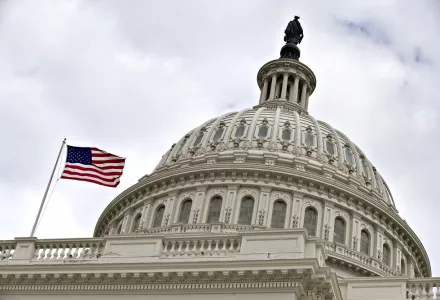The Boston Tech Hub Faculty Working Group (FWG), hosted by former Secretary of Defense and Belfer Center Director Ash Carter and Harvard John A. Paulson School of Engineering and Applied Sciences Dean Frank Doyle, are meetings that explore and answer the question: How do we define the public purpose in the context of emerging technologies and integrate public purpose into the development and management of those technologies?
Our collective future requires that experts apply knowledge in the service of civic duty and public purpose. The brightest and most creative problem solvers seek the hardest and most interesting problems. These meetings are an opportunity for faculty members and tech industry experts to evaluate the impacts of an emerging technology and exchange interdisciplinary approaches to guide their development. Furthermore, by gathering together, developing unfamiliar connections, and advancing new ideas, this community will be better prepared to shape the future of technological advancement.
The agenda for these meetings is designed to:
● Identify current controversies or debates surrounding this emerging technology
● Discuss inflection points where risks can be mitigated or public purpose can be integrated
● Propose mechanisms for mitigating risk or integrating public purpose
During the fall semester, our sessions focus on a selection of specific emerging and disruptive technologies. The spring semester sessions build on concerns raised and conclusions reached during the fall sessions and focus on potential solutions to help shape a future in which technology benefits humanity as a whole.
The first spring session for 2019 is on the topic of the Office of Technology Assessment (OTA) or other mechanisms to help Congress effectively respond to emerging technologies. This session will examine Congressional science and technology (S&T) capacity needs and how these needs are shaped by the current, rapidly evolving emerging technology landscape. This session will also explore the S&T-relevant resources that currently exist for Congress, and how the past work of OTA and similar efforts might be adopted to strengthen Congressional decision-making today.

